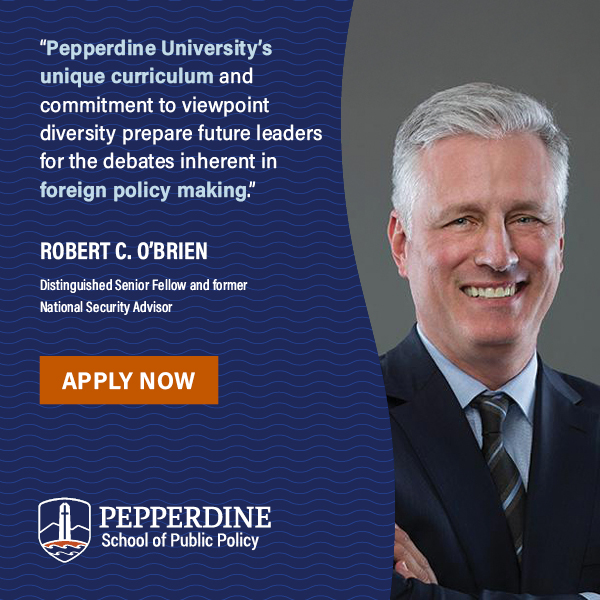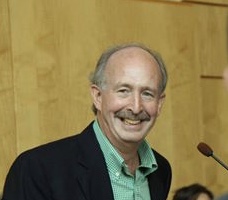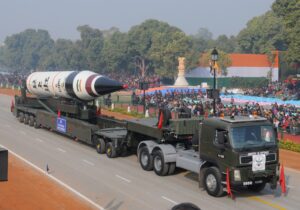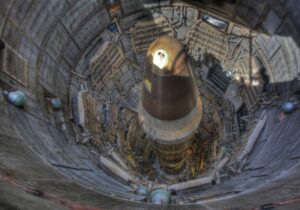With the recent publication of the exchange between Wilson Miscamble and Marc LiVecche, Providence made an important contribution in helping people of faith think more clearly about the moral implications of the atomic bombings of Hiroshima and Nagasaki. No doubt this year’s anniversary will bring an avalanche of articles and social media posts—many from religious writers across the theological spectrum—bewailing the error, even “the evil,” of America’s actions in the first two weeks of August 1945. This year these voices will likely find a more receptive audience for a host of reasons, not the least of which is that Hiroshima and Nagasaki fit nicely into the now prevailing narrative about the wickedness of the American project. As we confront these voices, a paper Alberto Coll, a DePaul University law professor and international relations scholar, wrote more than 30 years ago provides a helpful corrective.
Drawing from Christian realism—that “honorable tradition of Christian thinking” contemporary people of faith so often neglect—Coll argues that recognizing the diverse roles Christians may be called to play helps them understand their place in international politics. Among the callings for the Christian as citizen are those of prophet, patriot, and policymaker. Prophets are important, Coll says, because “they remind us of the absolute values against which we are to measure our actions. They point to God’s judgement and our utter failure before God’s truth. They challenge us and make us feel uncomfortable” and “prod us to look for creative ways in which, as Christians, we might make a difference in the world of power politics.” Patriots, too, have “an honorable place in the Christian community.” Properly understood, “patriotism is a rejoicing in the traditions and values of our earthly homeland” and a recognition that “beyond the tie that binds all Christians in this world, there are other ties that bind us with other believers and unbelievers alike with whom we share a way of life and the obligation to defend it.” Finally, the role and tasks of the Christian policymaker are “often much more difficult, and his/her choices more agonizing, than those of the prophet.” While the prophet condemns injustice and war and lauds peace, the policymaker must often engage in the “excruciating prudential calculus” of choosing between morally imperfect options. For example, “it was the policymaker who had to decide whether the United States should ally itself with Stalin’s despicable regime in order to defeat the Third Reich, and whether or not to drop an atomic bomb over Hiroshima killing tens of thousands as an alternative to the probable deaths of over a million Americans and Japanese that would have resulted from an invasion of Japan.”
Unfortunately, American Christians have lost a proper understanding of these callings along with a proper understanding of two-kingdom theology. The two are arguably connected with the result that the public voice of many Christians today has become functionally anabaptist or fundamentalist. The reclamation of a two-kingdom theology is arguably a first step toward more careful and responsible thinking about issues such as Harry Truman’s decision to bomb Hiroshima and Nagasaki.
The Christian citizen holds dual citizenship—to use Augustinian categories—in both the City of God and the Earthly City. The Christian also holds citizenship responsibilities in both cities that include evangelism and the re-ordering of a dis-ordered creation. The cosmic claims of redemptive history mean that Christians should not and cannot do their faith only on Sunday mornings. The Christian citizen’s earthly tasks constitute what Richard Mouw has aptly called “holy worldliness.” The Christian’s dual citizenship also means that Christians have multiple identities, loyalties, and responsibilities: I am a son, I am a husband, I am a parent, I am an American, I am a Christian, etc. The central point? These identities, loyalties, and responsibilities, properly understood, are not mutually exclusive.
But, as Alberto Coll reminds us, when Christians enter the practical sphere of the Earthly City, they have “an obligation to go beyond the realm of prophetic judgement and enter that of relative moral distinctions. This is a road full of tensions and uneasiness and it is one we are to walk with ‘fear and trembling.’ Existential humility before the knotty complexities of the political world, and openness to God’s truth and judgement are equally vital in this pilgrimage.”
Exactly 75 years ago, President Truman confronted these knotty complexities and walked that road full of tension and uneasiness. According to one of Truman’s biographers, the exact nature of his religious belief remains obscure. As a young man Truman whimsically described himself to his wife Bess as a “Lightfoot Baptist” since he liked to play cards, go to shows, dance, and have a good time. While perhaps not a serious, reflective Christian, Truman clearly understood—even if only instinctively via his early religious upbringing or via common grace—that in the meanwhile of history in which we live, morally sound policymaking is grounded in prudence. That is, the thoughtful weighing of competing goods and lesser evils. Writing to his sister after the bombings, Truman acknowledged that “it was a terrible decision. But I made it.” Without ignoring the tragedies of Hiroshima and Nagasaki, we can be grateful for President Truman’s decision.









